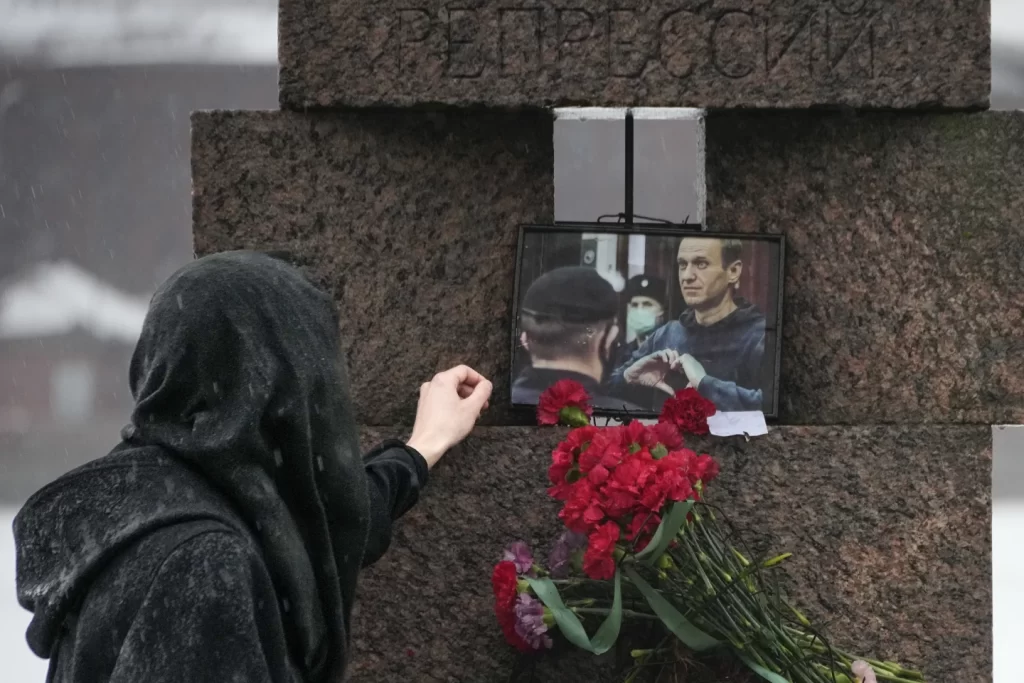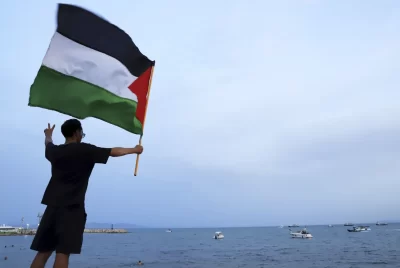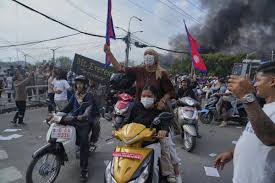
Alexei Navalny’s spokesperson confirmed Saturday that the Russian opposition leader had died at a remote Arctic penal colony and said he was “murdered,” but it is unclear where his body is.
His death — less than a month before an election that will give Putin another six years in power — has removed President Vladimir Putin of his greatest political foe who organised mass anti-Kremlin protests and crusaded against corruption. It has also deprived the Russian opposition of its most well-known politician and sparked a search for Navalny’s body, which his team said was not being returned to his family until official tests are done.
An official note handed to Navalny’s mother stated that he died at 2:17 p.m. local time Friday, Kira Yarmysh, Navalny’s spokesperson said. She added that an employee of the prison colony said that Navalny’s body was taken to the nearby city of Salekhard as part of a probe into his death.
Ivan Zhdanov, the director of Navalny’s Anti-Corruption Foundation, wrote on X, formerly Twitter, that Navalny’s mother had been told by prison officials that her son had perished due to “sudden death syndrome” when she arrived at his former penal colony Saturday with one of the politician’s lawyers.
When a lawyer and Navalny’s mother visited the morgue in Salekhard, it was closed, Navalny’s team wrote on their Telegram channel. The lawyer called the morgue and was told that Navalny’s body is not there, his team said. Another of Navalny’s lawyers went to Salekhard’s Investigative Committee and was told that the cause of Navalny’s death had not yet been established and that new investigations are being done with the results to be released next week, Yarmysh said.
Russia’s Investigative Committee, Yarmysh said, informed his team that the body would not be handed over to his relatives until those investigations had been completed.
“It’s obvious that they are lying and doing everything they can to avoid handing over the body,” she wrote on X, adding that his team “demand that Alexei Navalny’s body be handed over to his family immediately.”
Russia’s Federal Penitentiary Service reported that Navalny felt sick after a walk and became unconscious at the penal colony in the town of Kharp, in the Yamalo-Nenets region about 1,900 kilometers (1,200 miles) northeast of Moscow. An ambulance arrived, but he couldn’t be revived. The cause of death is still “being established,” it said.
Maria Pevchikh, head of the board of Navalny’s Anti-Corruption Foundation, said that the opposition leader would “live on forever in millions of hearts.”
“Navalny was murdered. We still don’t know how we’ll keep on living, but together, we’ll think of something,” she wrote on X.
Arrests continued Saturday after more than 100 people were detained in various Russian cities when they came to lay flowers in memory of Navalny at memorials to the victims of Soviet-era purges, according to OVD-Info, a group that monitors political repression in Russia.
The tributes were removed overnight but people continued trickling in with flowers on Saturday. In Moscow, a large group of people chanted “shame” as police dragged a screaming woman from the crowd, video shared on social media showed.
More than 10 people were detained at a memorial in St. Petersburg, including a priest who came to conduct a service for Navalny there.
In other cities across the country, police cordoned off some of the memorials and officers were taking pictures of those who came and writing down their personal data in a clear intimidation attempt.
“After the murder of Alexei Navalny, it’s absurd to perceive (Russian President Vladimir) Putin as the supposedly legitimate head of the Russian state. He is a thug who maintains power through corruption and violence,” Ukrainian President Volodymyr Zelenskyy said at the Munich Security Conference in Germany Saturday.
“Just yesterday he tried to send us all a clear message — as the Munich Security Conference opened, Putin murdered another opposition leader,” Zelenskyy said.
U.K. Foreign Secretary David Cameron said Saturday that Britain “will be taking action” against the Russians responsible for the death of Alexei Navalny.
Speaking to broadcasters in Munich, Cameron said “there should be consequences” for “appalling human rights outrages like this.” He said Britain would “look at whether there are individual people that are responsible and whether there are individual measures and actions we can take.” Cameron did not say whether the response would consist of financial sanctions or other measures.
U.S. President Joe Biden Friday said Washington doesn’t know exactly what happened, “but there is no doubt that the death of Navalny was a consequence of something Putin and his thugs did.
The Kremlin bristled Friday at the outpouring of anger from world leaders, with Putin’s spokesman, Dmitry Peskov, saying the statements are “unacceptable” and “outrageous,” noting that medics haven’t issued their verdict on the cause of Navalny’s death.
Navalny had been jailed since January 2021, when he returned to Moscow to face certain arrest after recuperating in Germany from nerve agent poisoning he blamed on the Kremlin. He was later convicted three times, saying each case was politically motivated, and received a sentence of 19 years for extremism.




